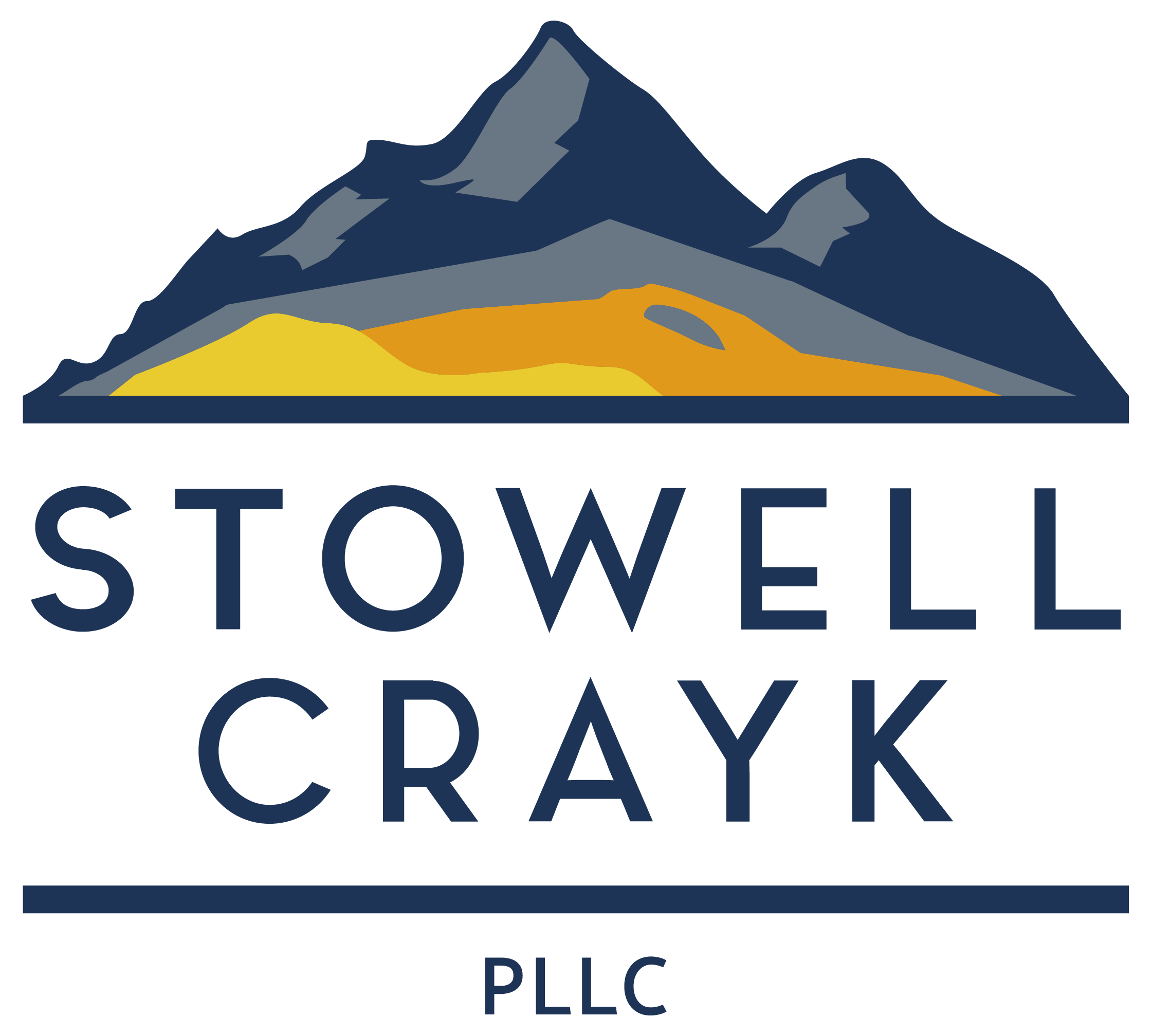When it comes to estate planning, it’s not just about ensuring your assets are passed on to your loved ones according to your wishes. It’s also about safeguarding your wealth from unnecessary tax liabilities. In this blog post, we’ll explore various strategies that can help you protect your wealth while planning for the future. But where do you begin, and how can you navigate the complexities of estate planning with confidence? That’s where a criminal defense law firm comes in.
Stowell Crayk Law Firm is your partner in crafting a thorough estate plan that aligns with your unique financial situation and goals. With their expertise, they can guide you through the intricate world of estate planning and tax efficiency. Here’s how they can assist you:
1. Tax Efficiency
Estate and inheritance taxes pose a powerful threat to the money you have made over your lifetime. These tax burdens can seriously decrease the wealth you’ve accumulated. To protect your assets from these tax loads, proactive measures are important, beginning with a well-structured estate plan that incorporates tax considerations. If you are planning your estate, step one is contacting an experienced lawyer from Stowell Crayk.
In order to protect your wealth from excessive taxes, you need to carefully plan your estate around your unique financial circumstances and objectives. This approach ensures maximum tax efficiency. Experienced estate planning attorneys are priceless. They navigate complex tax laws, stay current with evolving regulations, and identify tax optimization opportunities. A lawyer’s guidance enables you to make informed decisions that minimize tax liabilities while securing a prosperous future for your beneficiaries
2. Lifetime Gifting
Lifetime gifting is another estate planning strategy to reduce your taxable estate. It allows you to share your wealth with heirs while still alive, witnessing the positive impact while minimizing their future estate tax burden. A key aspect of this strategy is the annual gift exclusion, which enables you to gift a specified amount to each individual without incurring gift tax.
These exclusions are entirely tax-free, benefiting both you and the recipients, and streamlining tax-efficient asset transfer. By using these exclusions over time, you gradually decrease your taxable estate’s size. This approach ensures your heirs receive a larger share of your wealth while potentially reducing their future estate tax obligations.
3. Use of Trusts
Trusts play a large role in estate planning, offering individuals powerful tools to protect their assets and minimize tax liabilities. There are two common types of trusts, revocable living trusts and irrevocable trusts. They serve different purposes in safeguarding one’s wealth. Revocable living trusts allow you to maintain control over your assets during your lifetime while transitioning to your beneficiaries upon your passing. They are revocable, meaning you can make changes or dissolve the trust if your circumstances evolve, making them a valuable choice for those who want ongoing control and flexibility.
Conversely, irrevocable trusts are specifically designed to provide asset protection. By placing assets in an irrevocable trust, you essentially remove them from your taxable estate, which can help reduce the impact of estate taxes. These trusts also shield assets from creditors, ensuring that your beneficiaries receive the maximum benefit from your estate. While the drawback is that, as the name suggests, irrevocable trusts are generally inflexible once established, the trade-off is the potential for significant tax savings and enhanced asset protection.
4. Qualified Plans
Qualified plans, like retirement accounts and life insurance policies, provide a tax-efficient method for transferring wealth in estate planning. By designating the right beneficiaries and considering tax implications, you can ensure your wealth endures for future generations. Retirement accounts, such as 401(k)s and IRAs, offer tax advantages, with beneficiaries often receiving funds under favorable tax treatment. Carefully selecting beneficiaries can extend tax benefits, safeguarding your retirement savings for your loved ones
Similarly, life insurance policies effectively support estate planning by offering tax-free death benefits and bypassing probate. Strategic beneficiary designations ensure that intended recipients receive insurance proceeds without tax consequences. This preserves your wealth for your heirs while simplifying the wealth transfer process, making it a vital strategy within estate planning.
5. Annual Gift Exclusion
The annual gift exclusion is another tool in estate planning, allowing tax-free gifts up to a set amount each year to numerous recipients. It facilitates the proactive transfer of assets while you’re alive. The main advantage is gradual reduction of your taxable estate, lowering potential estate taxes and ensuring your beneficiaries receive maximum wealth.
By utilizing the annual gift exclusion, you can strategically distribute assets to family, friends, or others without gift tax liability. This is especially beneficial for those wanting to financially support loved ones during their lifetime. Over time, these tax-free gifts reduce your taxable estate, minimizing potential tax burdens for beneficiaries and providing them with a larger share of your assets, enhancing their financial security.
6. Charitable Giving
Charitable giving in estate planning is a win-win strategy benefiting both the giver and the broader community. By including charitable organizations in your estate plan, you can support causes you’re passionate about, leaving a lasting legacy in areas like education, healthcare, environmental conservation, or social justice.
This philanthropic approach extends beyond altruism. It’s also a smart financial move. Charitable contributions can significantly reduce estate taxes. When you donate assets to charitable organizations, those assets are often excluded from your taxable estate, diminishing its overall value. Consequently, this reduces the potential estate tax burden for your heirs. Strategically allocating assets to charities ensures a larger portion of your wealth benefits both your chosen causes and your beneficiaries, providing a dual advantage of social impact and financial savings within your estate plan.
7. Business Succession Planning
Business succession planning is vital within estate planning, especially for business owners. It ensures the seamless continuity of your company and safeguards your wealth. Businesses often constitute a significant portion of an estate. Without a well-structured succession plan, potential financial instability and conflicts among heirs or partners may arise.
One major benefit is tax mitigation. Proper planning minimizes the tax burden on the business and those inheriting or taking over the company. Strategies like gifting or selling business shares at favorable tax rates facilitate efficient ownership transfer while preserving family wealth. Effective succession planning secures the company’s future, preserves your legacy, and minimizes financial disruptions.
Stowell Crayk Law Firm
Estate planning isn’t just about distributing assets. It’s about preserving your wealth for future generations. To protect your wealth from unnecessary tax liabilities, it’s important to use these strategies and work closely with financial advisors and estate planning attorneys. By doing so, you can rest assured that your loved ones will benefit from your hard-earned assets while minimizing the impact of taxes on your estate.
For personalized guidance and professional support in your estate planning journey, we invite you to reach out to Stowell Crayk Law Firm. Our experienced team is here to help you navigate the complexities of estate planning, ensuring that your legacy is secured and your beneficiaries receive the maximum benefit. Don’t wait; take the first step toward a more secure financial future by contacting us today. Your legacy matters, and we’re here to make sure it’s preserved.

